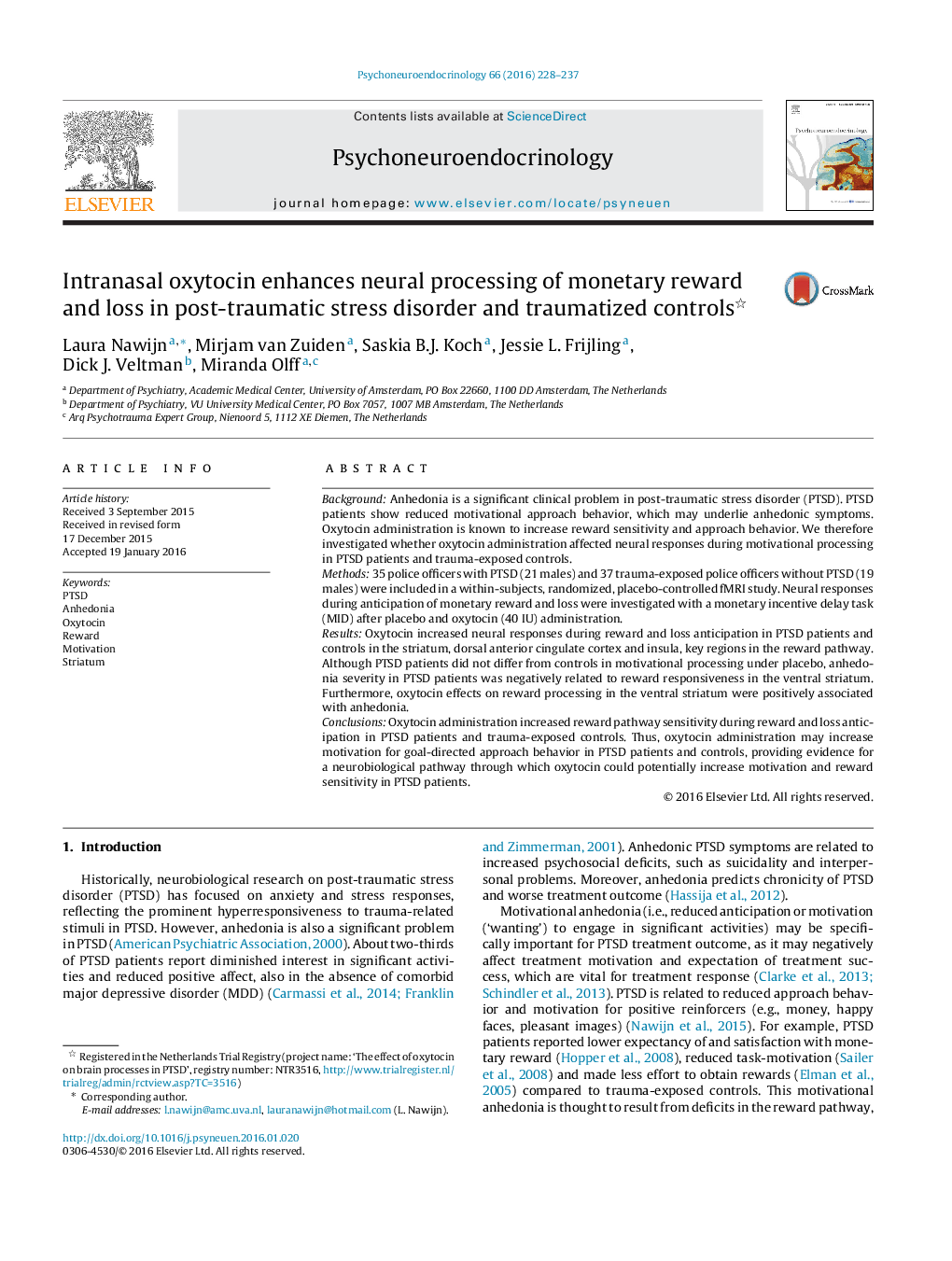| کد مقاله | کد نشریه | سال انتشار | مقاله انگلیسی | نسخه تمام متن |
|---|---|---|---|---|
| 336317 | 547112 | 2016 | 10 صفحه PDF | دانلود رایگان |
• This is the first study assessing oxytocin effects on motivational processing in PTSD.
• Oxytocin enhanced neural reward and loss processing in PTSD patients and controls.
• Enhanced motivational processing may increase motivation for therapy in PTSD.
• Thereby, intranasal oxytocin may benefit treatment response in PTSD.
BackgroundAnhedonia is a significant clinical problem in post-traumatic stress disorder (PTSD). PTSD patients show reduced motivational approach behavior, which may underlie anhedonic symptoms. Oxytocin administration is known to increase reward sensitivity and approach behavior. We therefore investigated whether oxytocin administration affected neural responses during motivational processing in PTSD patients and trauma-exposed controls.Methods35 police officers with PTSD (21 males) and 37 trauma-exposed police officers without PTSD (19 males) were included in a within-subjects, randomized, placebo-controlled fMRI study. Neural responses during anticipation of monetary reward and loss were investigated with a monetary incentive delay task (MID) after placebo and oxytocin (40 IU) administration.ResultsOxytocin increased neural responses during reward and loss anticipation in PTSD patients and controls in the striatum, dorsal anterior cingulate cortex and insula, key regions in the reward pathway. Although PTSD patients did not differ from controls in motivational processing under placebo, anhedonia severity in PTSD patients was negatively related to reward responsiveness in the ventral striatum. Furthermore, oxytocin effects on reward processing in the ventral striatum were positively associated with anhedonia.ConclusionsOxytocin administration increased reward pathway sensitivity during reward and loss anticipation in PTSD patients and trauma-exposed controls. Thus, oxytocin administration may increase motivation for goal-directed approach behavior in PTSD patients and controls, providing evidence for a neurobiological pathway through which oxytocin could potentially increase motivation and reward sensitivity in PTSD patients.
Journal: Psychoneuroendocrinology - Volume 66, April 2016, Pages 228–237
